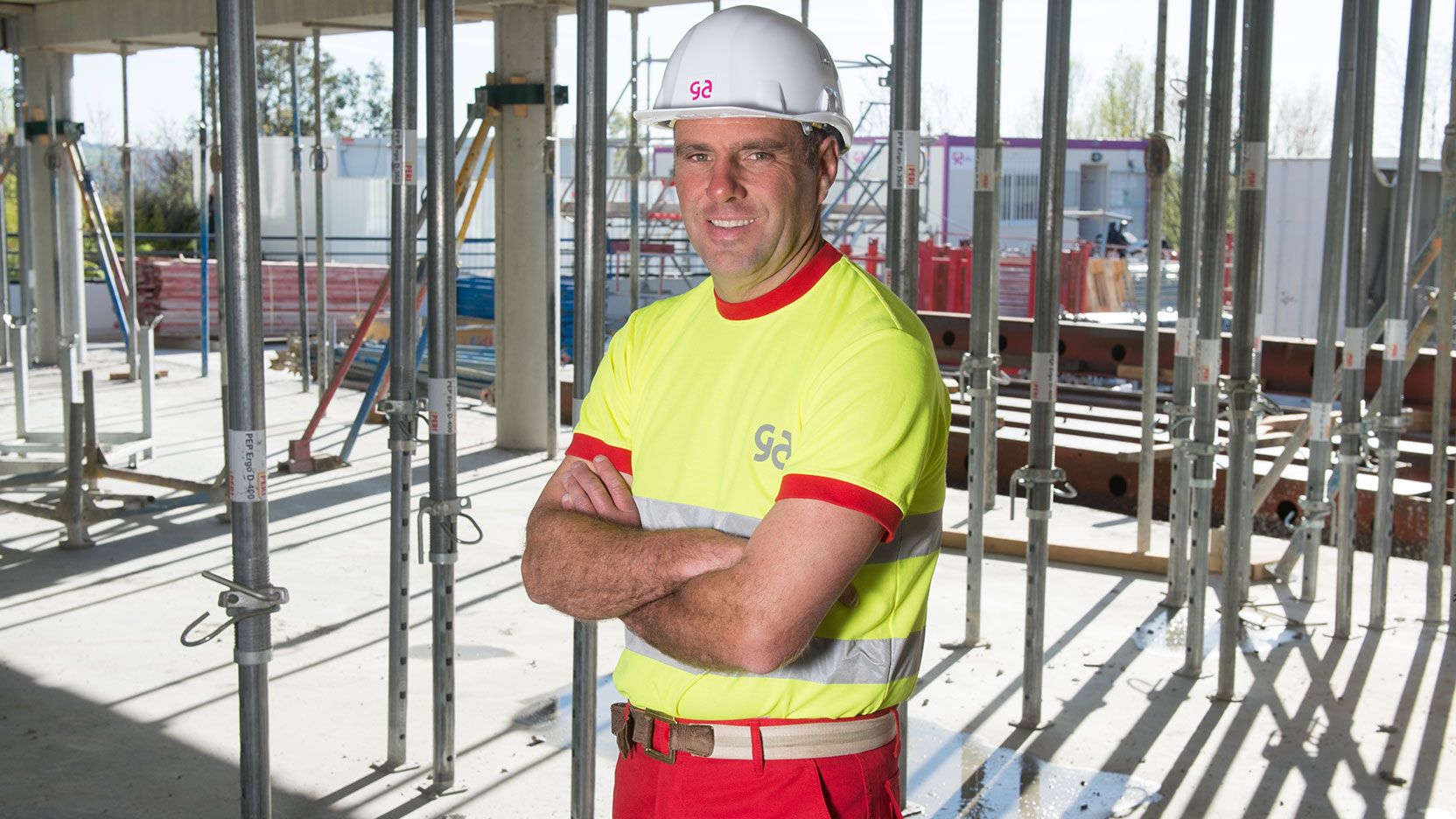What is the role of a Site Manager ?
The Site Manager organizes and oversees part or all of the construction site, depending on its size. He leads his teams, monitors daily progress and the quality of finished work, ensures the quality of the work delivered, coordinates tasks based on the construction plans, and plans the work schedule. He works closely with the Works Supervisor, who is his direct superior. The Site Manager is responsible for the well-being of his team, site hygiene, and most importantly, the safety of the men and women under his supervision.
What are the responsibilities of a Site Manager ?
Before the construction work begins, the Site Manager must :
- Study the plans (ground markings, identification of networks, signage…) and the technical documentation (budget, delivery…)
- Participate in planning meetings with the Works Supervisor and the Design Engineer
- Analyze and assess technical and workforce requirements for each trade in order to refine the budget
- Identify constraints and integrate them into the digital model, now possible thanks to the digital transformation of construction sites. Afterwards, the Site Manager will be responsible for keeping it updated
Once the site is active, the Site Manager leads the team. He will:
- Set production goals and assign tasks to different trades in close collaboration with team leaders
- Support the Works Supervisor in managing staff and anticipating labor needs
- Define work schedules
- Manage on-site issues and unexpected events
- Supervise his teams during complex operations and ensure a healthy work environment (hygiene, safety, well-being…)
- Meet deadlines and ensure the quality of work performed
Alongside site management, he also handles administrative tasks. He must:
- Manage salaries, bonuses, and invoices
- Organize materials supply, maintenance, and replenishment
- Handle storage, particularly of off-site prefabricated elements
- Regularly record expenses and ensure they align with the budget defined during planning meetings
- Maintain a daily report for his superiors, noting progress and any potential issues
What are the working conditions of a Site Manager?
The Site Manager will be required to travel depending on the location of operations. Often outdoors and rarely seated at a desk, this is a highly mobile job. He must balance managing the site with administrative responsibilities, making for full and varied workdays. It’s a demanding and rarely monotonous profession — no two days are alike!
What education and training are needed to become a Site Manager?
After middle school, there are several vocational high school options:
- Vocational Baccalaureate in Public Works
- Vocational Baccalaureate in Building Technology
After high school, the future Site Manager can pursue a BTS or DUT:
- BTS in Building Construction
- DUT in Civil Engineering
Then, several professional degrees can help consolidate and build new skills:
- Professional degree in Construction Professions
- Bachelor’s in Public Works
What skills does a Site Manager need?
A Site Manager must have strong analytical abilities. He must possess excellent leadership and communication skills. He should have solid technical knowledge of construction practices and materials. He must be well organized to meet deadlines and stay within budget.
What are the career prospects for a Site Manager?
After several years of experience, a Site Manager can aspire to become a Works Supervisor.
What is the difference between a Works Supervisor and a Site Manager?
The two roles are different: the Works Supervisor is the Site Manager’s superior and manages several sites, unlike the Site Manager who focuses on a single construction site.
Guillaume, Site Manager at GA Smart Building
Holder of a BEP-CAP and graduate qualifications in Building, I continued my studies with a year of Civil Engineering, then a second BEP-CAP in masonry with the Compagnons du Devoir. I started at an SME as a site worker and I came out two years later as a team leader. Then I joined a cooperative as assistant site manager before being recruited by GA in 2000. First in the same position and then as site manager seven years later. I appreciate the human dimension at GA Smart Building, the SME approach, which does not exclude very strong ambitions: from a budgetary point of view, or more simply due to their size, the projects developed by GA are significant, represent a huge responsibility and offer great opportunities for progression.
Start of the day
Arrival on site.
Calls to team leaders, dispatching of plans and the schedule of tasks to be done during the day.
8:00 a.m.
Tour of the site to check that everyone is at his or her post and to demonstrate what has to be done in the field. Throughout the day, responding to requests, both from my teams and subcontractors.
9:00 a.m.
Checking emails, managing emergencies.
Confirmation of orders of materials. If a plan presents difficulties, call the design office to inform them and, if necessary, ask for clarifications. Call to the Site Manager, discussion regarding progress on site and the level of completion of the ordered products to avoid any dead time on site.
10:30 a.m.
Another tour of the site to answer questions and ensure that everything that is done is consistent with safety plans and standards.
1:00 p.m.
Ensuring that the site is running correctly.
Throughout the day, calls from the design office, process planning department and suppliers who flag up any possible problems with orders.
End of the day
Head to the office to manage administrative tasks, confirm orders for the next day and take an inventory of the human and material resources implemented during the day.
